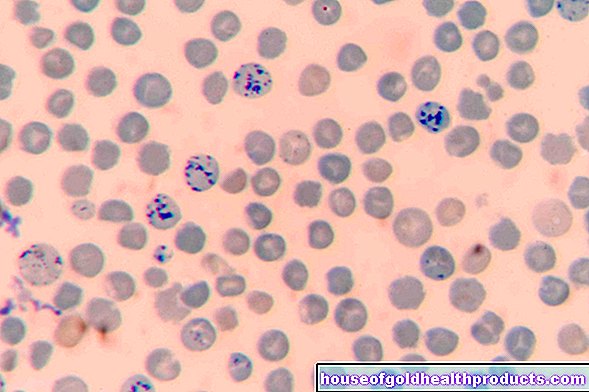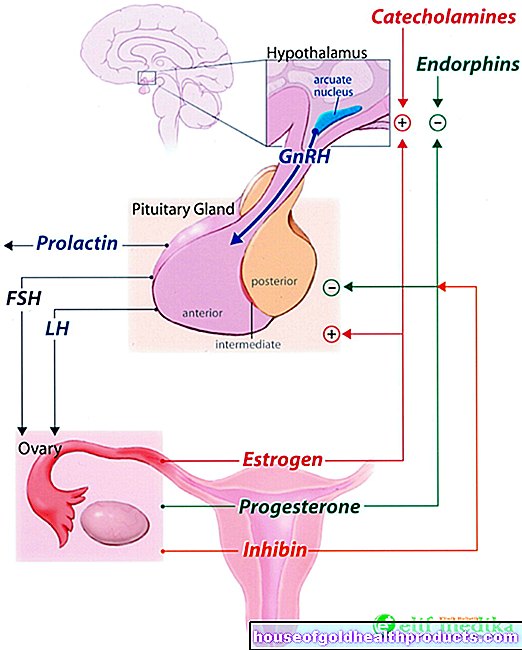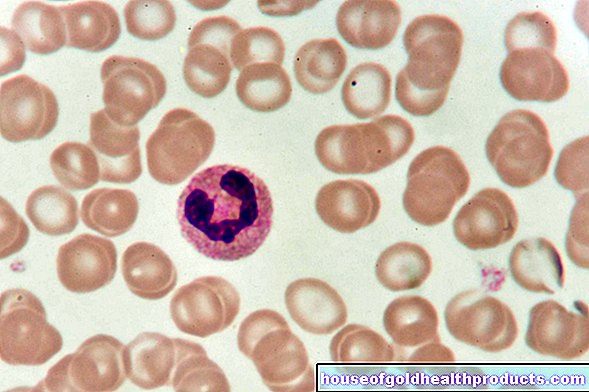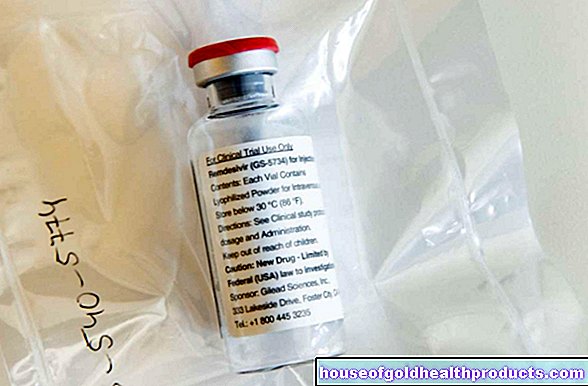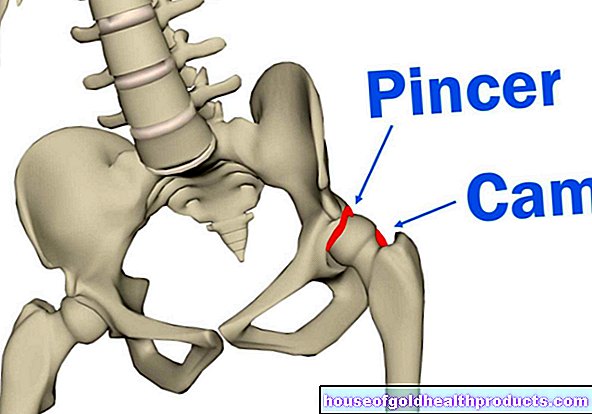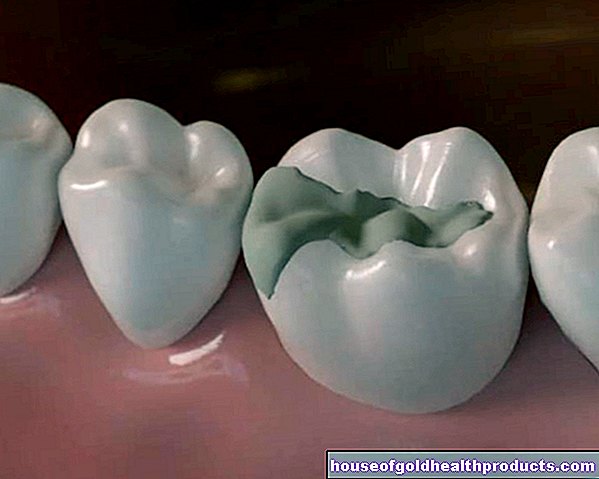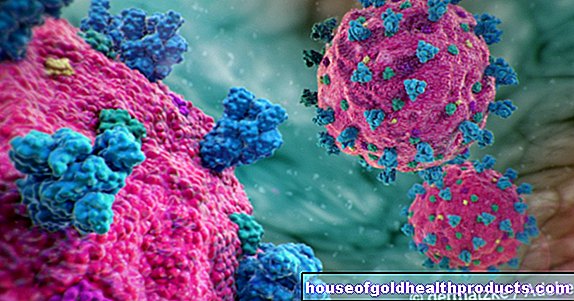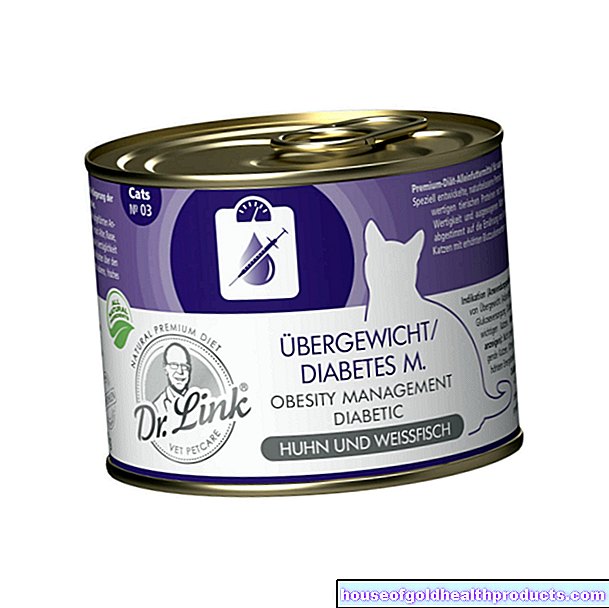Liver Cancer Symptoms
Updated onDr. med. Julia Schwarz is a freelance writer in the medical department.
More about the experts All content is checked by medical journalists.Liver cancer symptoms often appear relatively late in the course of the disease. In addition, there are unspecific complaints such as upper abdominal pain, fever or a persistent feeling of fullness. If the tumor in an advanced stage interferes with the important metabolic functions of the liver, numerous serious complaints arise. Read everything you need to know about liver cancer symptoms here.
ICD codes for this disease: ICD codes are internationally recognized codes for medical diagnoses. They can be found, for example, in doctor's letters or on certificates of incapacity for work. C22C24
Liver cancer symptoms: late and often unspecific
In the early stages of liver cancer, symptoms are rare - the disease can be symptom-free for a long time. Those affected then do not notice anything of the developing tumor in the liver. Only when this is more advanced do the first symptoms of liver cancer appear. In addition, these are mostly unspecific (e.g. weakness, tiredness, loss of appetite), so they can also have many other causes. This is why liver cancer is usually only discovered when it is difficult or impossible to treat.
First liver cancer symptoms
The first symptoms of liver cancer include a feeling of weakness and tiredness: The patients are exhausted remarkably quickly in everyday life, despite sufficient sleep they are constantly tired and less productive.
Loss of appetite and indigestion such as bloating, gas, constipation or diarrhea are also typical early symptoms of liver cancer. Some patients also develop an increased temperature of unknown cause and report a general feeling of illness.
In the further course, a palpable swelling and pressure pain appear in the right upper abdomen. The liver tissue itself does not have any sensitive nerve fibers responsible for the sensation of pain. However, this does not apply to the liver capsule that surrounds the liver: it is equipped with nerves that can transmit pain signals to the brain. If the tumor has grown so far that the swelling presses against the liver capsule, the so-called "liver capsule pain" occurs.
Another common symptom of liver cancer is unwanted weight loss: The patients lose weight without this being explained by a change in lifestyle (e.g. more exercise, diet).
Late symptoms in liver cancer
In the advanced stages of the disease, symptoms of liver cancer can occur, which can be traced back to the loss of function of the organ. Because the further the malignant tumor spreads, the more healthy liver tissue it displaces - the functioning of the liver dwindles. In view of the many important tasks of the organ, this has serious consequences:
As the disease progresses, the tumor increasingly impairs the functions of the liver. The reduced excretion of bilirubin (the breakdown product of the red blood pigment hemoglobin) can lead to jaundice (jaundice). If the tumor has enlarged enough to press against the liver capsule, the patient often feels pain in the right upper abdomen. Reduced protein production in the liver can also cause water to accumulate in the legs and abdomen and impair blood clotting.
In an advanced stage, structural changes in the liver can lead to increased stress on the portal vein (portal hypertension). The increased blood pressure in the large vessel causes bypass circuits (so-called portocaval anastomoses) to develop. These include varicose veins (varices) in the esophagus, stomach and around the navel (periumbilical). The high pressure can tear the varicose veins and cause life-threatening bleeding.
Jaundice (jaundice)
In liver cancer, the liver cells are often no longer able to sufficiently metabolize the breakdown product of the red blood pigment - the yellow-brownish bilirubin - and to excrete it in the bile. It is then first deposited in the white part of the eye (sclera), later also in the skin and the mucous membranes and discolors them yellowish. Medical professionals refer to this as jaundice. This is often accompanied by itching - presumably because bilirubin is deposited near sensitive skin nerves and thus irritates them.
Water retention
The liver normally produces many important proteins (proteins). In the advanced stages of liver cancer, however, the organ can no longer produce certain proteins in sufficient quantities. This has several consequences - including water retention in the tissue (edema):
The reason for this is that the diseased liver can no longer produce enough albumin. In the vascular system, this protein is responsible for binding fluids and maintaining blood pressure. In this way, it prevents fluid from being deposited in the tissue. However, due to the lack of albumin in liver cancer, water escapes from the vascular system into the surrounding tissue. Water accumulates in the legs (leg edema) and in the abdomen (ascites = ascites).
The edema in the legs is easy to detect: If you press a finger into the skin on the outer edge of the tibia for a few seconds, a small dent will remain visible after letting go of the outer edge of the tibia, which will only recede very slowly. An accumulation of water in the abdomen is noticeable by an increase in the circumference of the abdomen.
In principle, however, such accumulations of water can also occur with other diseases, for example with heart failure (heart failure).
Impaired blood clotting
Blood coagulation also suffers from the cancer-related decline in protein production in the liver:
Blood clotting is a complex system that only works if there are sufficient clotting factors in the blood. These are certain proteins that are made in the liver. Late liver cancer symptoms can therefore be bleeding - the lack of coagulation factors means that the blood (e.g. in the case of injuries) can no longer clot sufficiently. This is particularly fatal in combination with increased blood pressure in the portal vein (see below), as life-threatening bleeding can occur in the esophagus or stomach.
Increased blood pressure in the portal vein
Depending on its location, liver cancer can also impair the function of what is known as the portal vein. This is a large vein in the abdomen that carries oxygen-poor and nutrient-rich blood from the digestive organs (stomach, intestines) and the spleen to the liver.
The organ's blood vessels change as a result of the pathological remodeling measures in the liver tissue. They come under pressure and harden. This increases the flow resistance for the blood that flows into the liver via the portal vein - it begins to accumulate in front of the liver, which causes the blood pressure in the portal vein to rise. If there is a sustained increase in portal vein pressure, doctors speak of portal hypertension.
Varicose veins of the esophagus & Co.
Normally, blood from the portal vein to the liver then flows through the inferior vena cava (inferior vena cava) to the heart. Due to the backflow in front of the liver in portal hypertension, the blood looks for alternative routes by bypassing the liver: so-called portocaval anastomoses are formed - vascular connections between veins from the catchment area of the portal vein and veins that lead to the lower or upper vena cava. lead, both of which flow into the right atrium of the heart. In advanced liver cancer, these diversions widen and are filled with blood. Possible consequences are, for example:
- Varicose veins of the abdominal wall: The veins in the abdominal wall can enlarge and sag through the diversion of blood - they become visible as tortuous, bluish shimmering varicose veins on the abdominal wall - doctors speak of "Caput medusae" (head of Medusa) based on the snakes on the head the Greek mythological figure Medusa.
- Varicose veins of the esophagus and stomach: The increased venous pressure in the liver can also cause varicose veins to form in the esophagus (esophageal varices) and the stomach. Some sufferers then report a feeling of pressure or fullness. However, these varices do not necessarily cause symptoms.
Bleeding in the esophagus and stomach
Even if they do not cause any symptoms at first, varices in the stomach and esophagus are problematic. The veins are very superficial here and can be easily injured, torn or ruptured and cause heavy bleeding. Such bleeding can occur very suddenly and can be caused by swallowing or coughing.
When bleeding from the esophagus or stomach, patients often vomit coffee grounds-like, brown-black blood. It occurs when the blood in the esophagus or stomach reacts with stomach acid - it turns dark and grainy.
This bleeding is very dangerous because a lot of blood is lost in a short time - there is a risk of circulatory failure. The bleeding can usually be stopped with an esophagus or gastroscopy. Preventive obliteration of the varices is also possible.
Further effects
The further the liver cancer progresses, the more difficult it is for the organ to fulfill its function as a detoxification organ. As a result, for example, toxins that arise in the course of protein metabolism (such as ammonia) can no longer be sufficiently broken down. They then get into the head with the blood and can damage brain cells there. This can cause depression, listlessness, personality changes and impaired consciousness up to and including hepatic coma (see: Hepatic Encephalopathy).
Toxins can also accumulate in other parts of the body, which the sick liver can no longer break down. This leads to kidney failure.
Recognize liver cancer symptoms
Detecting liver cancer at an early stage is difficult - if symptoms show at all that early, they are non-specific and can have many other causes. However, you should always consult a doctor in the event of persistent weakness, unwanted weight loss and persistent digestive problems such as a feeling of fullness. It does not necessarily have to be liver cancer symptoms, but early diagnosis is advisable in any case.
Liver cancer symptoms that appear in the later course of liver cancer are predominantly the result of impaired liver function. They also occur in connection with other liver diseases - for example cirrhosis of the liver or chronic hepatitis infection. In order to be able to make the diagnosis of liver cancer unequivocally, a detailed diagnosis must therefore always be carried out, including with imaging methods such as ultrasound or computed tomography. This enables the doctor to clarify whether the symptoms are actually liver cancer symptoms.
Tags: first aid news menopause